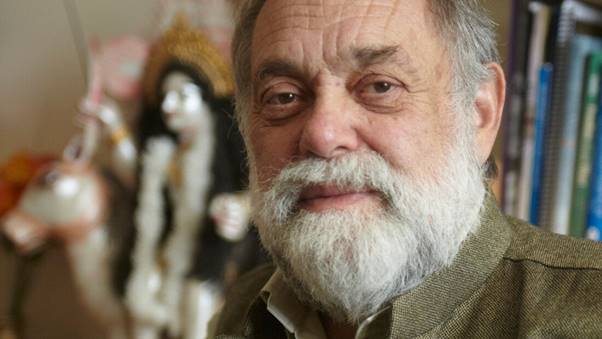.
Dr Richard Cash’s ORS saved millions, highlighting the impact of simple, research-backed solutions - NPR
Science and Simple Solutions
By Muhammad Hamid Zaman
Boston, MA

Growing up, I knew that we could trust the contents inside the white rectangular sachet. ORS - or oral rehydration solution - came in those tiny packets and worked every single time when there was a need. Unlike other medicines, I actually did not mind ORS at all. It had no unusual color, and more importantly, it did not taste bad. If we ran out, we didn't even have to go to the pharmacy, as this was available at the corner store on our small street. I was not the only beneficiary of ORS. Home of my aunts and uncles had similar packets and there was even an ad on TV.
It was much later in life - three decades in fact - that I learned that ORS had saved over 50 million lives across the world, and continues to do so. It was even later that I learned the story of ORS - also known as oral rehydration therapy or ORT. The story of its discovery is based in Dhaka in the late 1960s during the repeated cholera outbreaks that would devastate communities. It was the work of two American public health professionals, Dr Richard Cash and Dr David Nalin, that changed the course of cholera treatment first in East Pakistan and subsequently all over the world. The discovery was not just extraordinary in the sense that it was effective, it was also extremely powerful because it required no intravenous delivery, i.e., it could be given orally. The product was used widely during the 1970s, including in the refugee camps that were created after the 1971 war. Further simplifications to modify the "recipe" - a fistful of sugar, a pinch of salt, and half a liter of water - made the recipe scalable and accessible to some of the poorest parts of the country. It is a recipe that many in Bangladesh still remember today.
Simplicity became a major argument in Richard's work in subsequent years. The paper commemorating the 50th anniversary of the first paper that described ORT was appropriately titled "50 years of oral rehydration therapy: The solution is still simple". I had the pleasure and good fortune of meeting Richard as part of my own research and just to hear his stories from the 1960s of working in East Pakistan. Richard was not just smart (and funny), he was also incredibly gracious with his time. Among the things that I learned from him was that while ORT (in the end) was a simple solution, it was still based on decades of deep and painstaking research. While simplicity was a central theme of his public health work, it did not mean something that was inferior - or one lacking a serious scientific basis. In fact, he would say that the most powerful solutions that are simple stand on decades of rich scientific research. When Richard came to Dhaka in the 1960s, he was already familiar with research done in the 1950s and 1960s on cholera and knew what worked and what did not. The development of ORT was not simply a random accident of two doctors who decided to mix some salt and sugar and give it to dying cholera patients to see if it worked. It was based on a deep understanding of the loss of electrolytes, cellular pumps, and basic science of molecular mechanisms associated with cholera. As Richard would once say simple does not mean second class.
Richard continued his long engagement with public health in South Asia and was a mentor to many in Bangladesh, India, and Pakistan. He was instrumental in creating research institutions in Bangladesh and like me, countless students and researchers benefitted from his kindness and generosity of time and spirit. Dr Cash died last week in Cambridge, MA. He leaves behind an extraordinary legacy and a grateful world.
(The author is a Professor and the Director of the Center on Forced Displacement at Boston University. – The Express Tribune)

